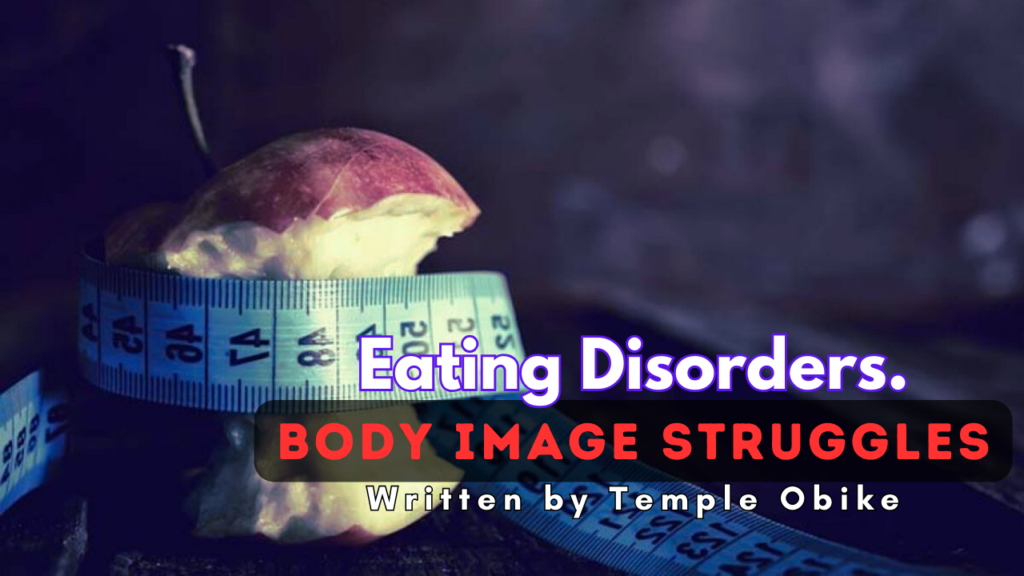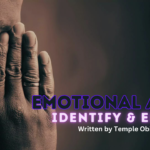Eating disorders are complex mental health conditions that affect millions of people worldwide. Yet, despite their prevalence, there is still a strong stigma surrounding them. This stigma often leads to misconceptions and judgement towards those struggling with these disorders. One aspect that adds to the stigma is the focus on body image, as many believe that eating disorders solely stem from a desire to be thin. However, the truth is that eating disorders are much more than that. In this blog post, we will explore the importance of breaking down the stigma surrounding eating disorders and how it relates to our understanding of body image.
Understanding Eating Disorders: More Than Just a “Diet”
Eating disorders are often simplistically viewed as a result of a desire to be thin or a form of extreme dieting. However, understanding eating disorders goes far beyond this misconception. While body image concerns can play a significant role in eating disorders, they are not the sole cause. In fact, these disorders are complex mental health conditions that involve a range of psychological, biological, and environmental factors.
It is important to recognize that eating disorders can affect individuals of all genders. While the stereotype may be that eating disorders primarily affect females, males can also struggle with these conditions. Additionally, eating disorders are not just limited to restrictive eating habits. They can also involve excessive eating or cycles of bingeing and purging. Understanding the diverse presentations of eating disorders is crucial in order to break down the stigma surrounding them.
Furthermore, it is important to acknowledge that eating disorders are not simply a matter of willpower or personal choice. They are serious illnesses that require professional treatment. Individuals with eating disorders often have underlying psychological issues such as low self-esteem, depression, or anxiety. Treating eating disorders involves addressing both the physical and mental health aspects of the condition, and providing a comprehensive support system.
The Inextricable Link Between Eating Disorders and Body Image
The relationship between eating disorders and body image is complex and interconnected. While it is true that body image concerns can play a significant role in the development of eating disorders, it is crucial to understand that the connection goes far deeper than a desire to be thin. Eating disorders are not simply about eating too much or too little; they are multifaceted conditions influenced by psychological, biological, and environmental factors.
Society often perpetuates the misconception that eating disorders only affect females. However, both males and females can struggle with these disorders. This misconception not only hinders the recognition and understanding of male eating disorders but also contributes to the stigmatization and underdiagnosis of these conditions in males.
It is also important to recognize that eating disorders can involve a range of disordered eating behaviors. While restrictive eating habits are commonly associated with eating disorders, they can also include excessive eating or cycles of bingeing and purging. By acknowledging these diverse presentations, we can challenge the stereotypes and myths surrounding eating disorders.
By breaking down the stigma surrounding eating disorders and body image, we can foster a greater understanding and empathy towards individuals who are suffering. It is crucial to recognize that eating disorders are not a result of willpower or personal choice. They are serious illnesses that require professional treatment and a comprehensive support system to aid in the recovery process.
In order to truly address the complexities of eating disorders, it is necessary to acknowledge the inseparable link between these conditions and body image, while also understanding the diverse factors that contribute to their development. By doing so, we can promote a more inclusive and supportive environment for individuals struggling with these disorders, regardless of their gender or specific disordered eating behaviors.
Shattering the Myths: Debunking Common Misconceptions about Eating Disorders
When it comes to eating disorders, there are many misconceptions and myths that perpetuate harmful stereotypes and hinder our understanding of these complex conditions. One common myth is that eating disorders are simply a result of unhealthy eating habits. While disordered eating behaviors are a significant aspect of eating disorders, it is crucial to understand that they are not solely caused by eating unhealthy or engaging in extreme diets.
Another common misconception is that eating disorders only affect females. This belief not only contributes to the underdiagnosis and stigmatization of male eating disorders but also ignores the fact that individuals of all genders can struggle with these conditions. By debunking this myth, we can create a more inclusive and supportive environment for all individuals battling eating disorders.
Furthermore, it is important to address the misconception that only certain eating disorder behaviors are considered valid. Eating disorders can manifest in a variety of ways, including excessive eating or cycles of bingeing and purging. By acknowledging these diverse presentations, we can challenge the notion that there is one “correct” way to have an eating disorder.
By shattering these myths and misconceptions, we can foster a greater understanding and empathy towards individuals who are suffering from eating disorders. It is essential to recognize that these disorders are complex mental health conditions that require professional treatment and support. Only by challenging these misconceptions can we create a society that truly supports and advocates for those affected by eating disorders.
Tackling the Stigma: The Role of Society and Media
The role of society and media in perpetuating the stigma surrounding eating disorders cannot be underestimated. Society often places a heavy emphasis on physical appearance and places unrealistic standards of beauty on individuals. This not only affects individuals’ body image but also contributes to the stigma surrounding eating disorders. Media, in particular, plays a significant role in shaping our perceptions and attitudes towards these conditions. Images of thin models and celebrities are often glorified, creating an idealized image that is unattainable for most people.
Furthermore, the media tends to portray eating disorders in a sensationalized and superficial manner. They often focus on extreme cases or portray individuals with eating disorders as weak-willed or attention-seeking. This portrayal not only perpetuates misconceptions about these disorders but also hinders our understanding and empathy towards those who are struggling.
To tackle the stigma surrounding eating disorders, society and media need to play a proactive role in promoting education and awareness. This can be done by providing accurate information about the causes, symptoms, and treatment of eating disorders. Media platforms should also strive to portray a more diverse range of body types and promote body positivity. By showcasing individuals of all shapes and sizes, society can challenge the narrow definition of beauty and promote acceptance and inclusivity.
Additionally, society as a whole needs to prioritize mental health and recognize the importance of seeking professional help for eating disorders. Support networks should be established to provide resources and guidance to individuals struggling with these conditions. By coming together as a community and addressing the stigma surrounding eating disorders, we can create a more compassionate and understanding environment for those affected.
Pathways to Recovery: Treatment and Support Options
Finding the right treatment and support options for individuals with eating disorders is crucial in their journey to recovery. Fortunately, there are several pathways available that can provide the necessary help and support.
One important aspect of recovery is seeking professional treatment from trained healthcare providers who specialize in eating disorders. This can include therapists, dietitians, and psychiatrists who can provide a comprehensive treatment plan tailored to the individual’s specific needs. Therapy, such as cognitive-behavioral therapy (CBT) or dialectical behavior therapy (DBT), can help individuals develop healthier attitudes and behaviors towards food and their bodies.
Support groups can also be a valuable resource for individuals in their recovery journey. Connecting with others who have had similar experiences can provide a sense of understanding, validation, and encouragement. Online forums, community centers, and support groups specifically tailored to eating disorders can provide a safe space for individuals to share their struggles and receive support from others who truly understand.
In addition to professional treatment and support groups, it is important to have a strong support system of family and friends. Having loved ones who are understanding, patient, and non-judgmental can make a significant difference in an individual’s recovery. Encouragement, active listening, and emotional support from trusted individuals can help individuals feel less alone and more motivated to continue on their path to recovery.
Remember, recovery from an eating disorder is a journey, and it takes time, patience, and perseverance. With the right treatment and support options, individuals can find their pathways to recovery and regain control over their lives.


